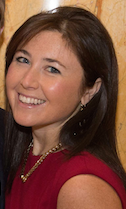On a recent NYC trip, I was delighted to have an opportunity to interview the brilliant and exuberant Meghan Cross from Red Bear Angels. As an active startup investor, she was generous in sharing her perspectives and fundraising tips with the Women 2.0 community.
What was your path to becoming an investor and what inspired you to get involved with Red Bear Angels?
When I graduated from Cornell in 2008, I dove right into technology as a part of Skype’s public relations team. Bringing this Jetsons-like technology into the mainstream was a fascinating experience, but it wasn’t until working on the PR for Foursquare – in the beginning days of the Bloomberg-driven NYC startup boom – that I became completely enamored with early-stage venture. So much so that I joined a then even earlier stage company StyleCaster to help build the company’s marketing team.
Through several inflection points many media startups faced during that time, our investors always approached conversations with that keen eye, pattern recognition, and unique perspective one could only obtain from investing as a profession. So once StyleCaster got to a point that it was ripe for acquisition, I decided to transition over to the investing side.
While working as a NY-based representative for a large fund out west, I received word that a few Cornell alums were starting an angel group dedicated to harnessing the entrepreneurship of Cornell’s network. I knew I had to jump on the train. With investing and entrepreneurial day jobs of their own, they brought me on as the firm’s manager to kick Red Bear Angels into full gear.
Fast forward 18 months, and thanks to the RBA Advisory Board – Deb Kemper, Sam Sezak, Thatcher Bell, Gus Warren, John Alexander, Harvey Kinzelberg, Drew Bagin, & Eric Young – we have invested $5.1M across a wide variety of 20 early-stage ventures founded or led by Cornelians with a group of 500+ members to support this growing network!
How do you find the best startup deals?
It’s too early to determine which of our investments will be the best, as we’ve only been investing for sub-2 years, but our investment activity shows that it is much more common for Red Bear members to take to a company if it came recommended by other founders in our portfolio, our more active investors with deep ties to the Cornell entrepreneurship network, or investors with whom I have worked closely in the past.
What are you looking for in a startup?
Proof of product market fit. There are plenty of great companies built on spec, but I prefer to work with the founders who have deep domain know-how and as a result understand the nuances of the fields they plan to shake up.
What tips do you have for women who are looking to get more involved in the angel or venture investing space?
Build a diligence network and leverage it wisely. There is no better way to analyze a company than by listening to close contacts with relevant domain expertise reveal their candid thoughts, and then synthesize those thoughts into an investment thesis.
For instance, any time I look at an investment opportunity in healthcare IT and infrastructure, I discuss it with my friends who are doctors to determine whether it’s a needed problem-solver, a nice to have, or a logistical nightmare to onboard and implement. And any time I’m looking at a new AdTech play, I’ll loop in publishers and Ad Ops specialists to determine how much they would realistically spend on a feature like this. Collecting these data points is key, but the practice of synthesizing these points in an actionable way is what will make you a great investor. I would give the same tip to both female or male investors.
For female investors, in particular, I would simply forget any gender difference, sit in the same posture as other men in the room, speak in the same pitch, and straight up do your job. You too can wear AllBirds and jeans to meetings. Act as if, and the playing field will level itself out. Pick a female mentee while you’re at it, as that’s how we can make sure we’re not evening the ratio purely for the sake of numbers!
What advice do you have for female founders who are seeking funding?
Approach every meeting like a founder; not a female founder. Adjectives can either diffuse nouns or clarify them. “Female founder” fits the former. Instead, use a descriptor to carve out a niche for yourself: A verticalized niche – if backed up by passion and experience – communicates you’re a founder with relevant expertise. “SaaS” “FinTech” or “Ecommerce” founders are far more compelling than “Male Founders,” for instance.
If you’re still looking to use a descriptor as a way to connect with the person across the table, check out a bio for a philanthropic, alma-mater, or athletic-driven interest that you might have in common.
What’s next for you and how can our community offer support?
We are dedicated to building a support network for Cornell entrepreneurs, so any time you happen to meet great Cornell alumni, students or researchers – whether they are founders, investors, or simply experts in their domain – please send them our way!
Meghan Cross, Red Bear Angels
As Managing Director, Meghan leads the operations and investment team at Red Bear Angels. She joined RBA with a decade of experience growing media & software companies in NY & SF. As an early Director at StyleCaster Inc., Meghan led the digital media conglomerate’s marketing team through the business’ exit to She Knows Media. Prior, Meghan was in PR, helping to build Skype and Foursquare into household names. She draws venture experience from working with Bowery Capital, Foundation Capital, Metamorphic Ventures, and StarVest Partners. She is the founder of Cross Venture Services LLC, a launch advisor to such commerce platforms as Sailo (TechStars ’15), Shareswell, and Thursday Boot Co. Meghan has appeared on CNN’s “The Situation Room” with Wolf Blitzer and NBC’s “The Today Show,” and has contributed to TechCrunch. Meghan received her B.S. in Fiber & Textile Science from Cornell University and M.B.A. from Columbia Business School, where she was also Steve Blank’s TA. She resides in New York City and serves on the junior boards of Lincoln Center and the Facing History Organization.


